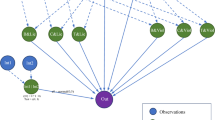Abstract
Sectarian tensions underlie conflicts across the Middle East, but little is known about their roots and associated beliefs. We conducted a large-scale empirical analysis, drawing on an original, geographically representative survey of over 4,000 devout Shiites across Iran and Iraq. We find that sectarian animosity is linked to economic deprivation, political disillusionment, lack of out-group contact and a sect-based view of domestic politics—paralleling patterns seen in ethno-nationalism elsewhere. In contrast, two alternative accounts are largely unsupported: sectarian animosity is not consistently associated with solidarity with a transnational sect-based community, nor does it seem to stem from disputes over religious doctrine. Nonetheless, this identity’s religious roots manifest in differences from typical ethno-nationalism; practising men are less sectarian, consistent with official doctrine encouraging unity, whereas practising women are more sectarian. These gendered patterns suggest an understudied mechanism: religiously mediated socialization, or the transmission of non-religious norms through religious practice.
This is a preview of subscription content, access via your institution
Access options
Access Nature and 54 other Nature Portfolio journals
Get Nature+, our best-value online-access subscription
$29.99 / 30 days
cancel any time
Subscribe to this journal
Receive 12 digital issues and online access to articles
$119.00 per year
only $9.92 per issue
Buy this article
- Purchase on Springer Link
- Instant access to full article PDF
Prices may be subject to local taxes which are calculated during checkout



Similar content being viewed by others
Data availability
The replication data are available via CodeOcean at https://doi.org/10.24433/CO.1650288.v1.
Code availability
Reproducible code and third-party verified results are available via CodeOcean at https://doi.org/10.24433/CO.1650288.v1.
References
Matthiesen, T. Sectarian Gulf: Bahrain, Saudi Arabia, and the Arab Spring That Wasn’t (Stanford Univ. Press, 2013).
Abdo, G. The New Sectarianism: The Arab Uprisings and the Rebirth of the Shi’a–Sunni Divide (Oxford Univ. Press, 2016).
Caryl, C. Strange Rebels: 1979 and the Birth of the 21st Century (Marshall Poe, New Books in History, 2013).
Nasr, V. The Shia Revival (W. W. Norton, 2016).
Khoury, D. R. The security state and the practice and rhetoric of sectarianism in Iraq. Int. J. Contemp. Iraqi Stud. 4, 325–338 (2010).
Haddad, F. Sectarianism in Iraq: Antagonistic Visions of Unity (Oxford Univ. Press, 2011).
Cammett, M. & Luong, P. J. Is there an Islamist political advantage? Annu. Rev. Polit. Sci. 17, 187–206 (2014).
George, S. Millions of Shiites gather in Iraq’s Karbala for Arbaeen, AP News, 2 Dec 2015. https://apnews.com/article/fcb7d64aaf724877877cb5ca62dfe19b (Accessed on 7 May 2022).
Horowitz, D. L. Ethnic Groups in Conflict (Univ. of California Press, 2000).
Petersen, R. D. Understanding Ethnic Violence: Fear, Hatred, and Resentment in Twentieth-Century Eastern Europe (Cambridge Univ. Press, 2002).
Fearon, J. D. & Laitin, D. D. Violence and the social construction of ethnic identity. Int. Organ. 54, 845–877 (2000).
Mir-Hosseini, Z. Debating Women: Gender and the Public Sphere in Post-Revolutionary Iran in Civil Society in Comparative Muslim Contexts (ed. Sajoo, A.) (I.B. Tauris and Institute of Ismaili Studies, 95–122 (2002).
Koolaee, E. Iranian women from private sphere to public sphere, with focus on Parliament. Iran Caucus 13, 401–414 (2009).
Kucinskas, J. A research note on Islam and gender egalitarianism: an examination of Egyptian and Saudi Arabian youth attitudes. J. Sci. Study Relig. 49, 761–770 (2010).
Scheible, J. & Fleischmann, F. Gendering Islamic religiosity in the second generation: gender differences in religious practices and the association with gender ideology among Moroccan- and Turkish-Belgian Muslims. Gend. Soc. 27, 372–395 (2013).
Blaydes, L. State of Repression: Iraq under Saddam Hussein (Princeton Univ. Press, 2018).
Abdullah, S., Gray, T. & Clough, E. Clientelism: factionalism in the allocation of public resources in Iraq after 2003. Middle East. Stud. 54, 665–682 (2018).
Hamilton, A. The Political Economy of Economic Policy in Iraq LSE Middle East Centre Paper Series No. 32 (2020), LSE Middle East Centre, London, UK.
Dekeyser, E. Islam, Exclusivity, and the State in France. PhD thesis, Massachusetts Institute of Technology (2019).
Akerlof, G. A. & Kranton, R. E. Economics and identity. Q. J. Econ. 115, 715–753 (2000).
Al-Ali, N. Iraqi women and gender relations: redefining difference. Br. J. Middle East. Stud. 35, 405–418 (2008).
Allport, G. W., Clark, K. & Pettigrew, T. The Nature of Prejudice (1954), Addison-Wesley Publishing Company, Reading, MA.
Pettigrew, T. F. Intergroup contact theory. Annu. Rev. Psychol. 49, 65–85 (1998).
Mabon, S. Saudi Arabia and Iran: Power and Rivalry in the Middle East Vol. 132 (IB Tauris, 2015).
Allport, G. W. in The Self in Social Interaction: Classic and Contemporary Perspectives Vol. 1 (eds Gordon, C. & Gergen, K. J.) (John Wiley & Sons, 1968).
Clingingsmith, D., Khwaja, A. I. & Kremer, M. Estimating the impact of the Hajj: religion and tolerance in Islam’s global gathering. Q. J. Econ. 124, 1133–1170 (2009).
Kalyvas, S. N. Ethnic defection in civil war. Comp. Polit. Stud. 41, 1043–1068 (2008).
Collier, P. & Hoeffler, A. Greed and grievance in civil war. Oxf. Econ. Pap. 56, 563–595 (2004).
Household Socio-economic Survey, Second Round (Iraq, 2012–2013): Living Standards Measurement Study (World Bank Development Data Group, 2013).
Alkhatib, W. Iraq Public Opinion Survey Report, 2013/2014 (Arab Barometer III, 2014).
Iraq Country Report (Arab Barometer IV, 2019).
Tipping, M. & Bishop, C. Probabilistic principal component analysis. J. R. Stat. Soc. B 61, 611–622 (2014).
Pepinsky, T., Liddle, R., & Mujani, S. (2018-03-29). Piety and Public Opinion: Understanding Indonesian Islam. Oxford University Press. Retrieved 7 May. 2022, from https://oxford.universitypressscholarship.com/view/10.1093/oso/9780190697808.001.0001/oso-9780190697808
Knox, D., Lucas, C. & Cho, W. K. T. Testing causal theories with learned proxies. Annu. Rev. Polit. Sci. 25, 419–441 (2022).
Peterson, C. B., Bogomolov, M., Benjamini, Y. & Sabatti, C. Many phenotypes without many false discoveries: error controlling strategies for multitrait association studies. Genet. Epidemiol. 40, 45–56 (2016).
Simes, R. An improved Bonferroni procedure for multiple tests of significance. Biometrika 73, 751–754 (1986).
Benjamini, Y. & Hochberg, Y. Controlling the false discovery rate: a practical and powerful approach to multiple testing. J. R. Stat. Soc. B 57, 289–300 (1995).
Acknowledgements
For support in the field, we thank A. Hammadi, A. A. Y. Al-Kufi (Kufa University president) and H. Nadhem (Kufa University professor). We also thank our survey supervisors F. K. Hasan, M. H. Machi, W. A. Kadhim, F. N. Harram and N. J. Gdhadab and our enumerator team. For advice on surveying in Iraq, we thank A. Jamal and M. Robbins, who generously shared their experience from the Arab Barometer; N. Krishnan, for sharing the instruments and data from the World Bank household economic survey for Iraq; and N. Sahgal, for discussing her experience with the work of the Pew Research Center in Iraq. We thank R. Mottahedeh, S. Mervin and G. Chatelard for early input on the project and M. Alshamary and R. Shaikh for research assistance. F.C. carried out the data collection associated with this project while on an Andrew Carnegie fellowship. She also acknowledges support from ARO MURI (award no. W911NF-121-0509). D.K. acknowledges financial support from the National Science Foundation (Graduate Research Fellowship under grant no. 1122374). The funders had no role in study design, data collection and analysis, decision to publish or preparation of the manuscript.
Author information
Authors and Affiliations
Contributions
F.C. collected the data. E.D. and D.K. analysed the data. F.C., E.D. and D.K. wrote the paper.
Corresponding authors
Ethics declarations
Competing interests
The authors declare no competing interests.
Peer review
Peer review information
Nature Human Behaviour thanks Justin Gengler, Don van Ravenzwaaij and the other, anonymous, reviewer(s) for their contribution to the peer review of this work.
Additional information
Publisher’s note Springer Nature remains neutral with regard to jurisdictional claims in published maps and institutional affiliations.
Supplementary information
Supplementary Information
Supplementary Sections 1–6, Tables 1–21 and Figs. 1–7.
Rights and permissions
About this article
Cite this article
Christia, F., Dekeyser, E. & Knox, D. Evidence on the nature of sectarian animosity from a geographically representative survey of Iraqi and Iranian Shia pilgrims. Nat Hum Behav 6, 1226–1233 (2022). https://doi.org/10.1038/s41562-022-01358-y
Received:
Accepted:
Published:
Issue Date:
DOI: https://doi.org/10.1038/s41562-022-01358-y



